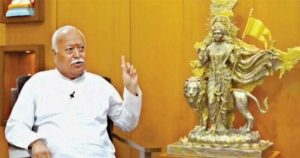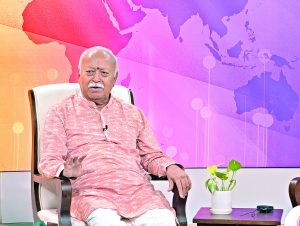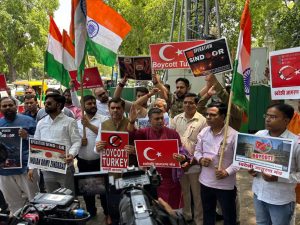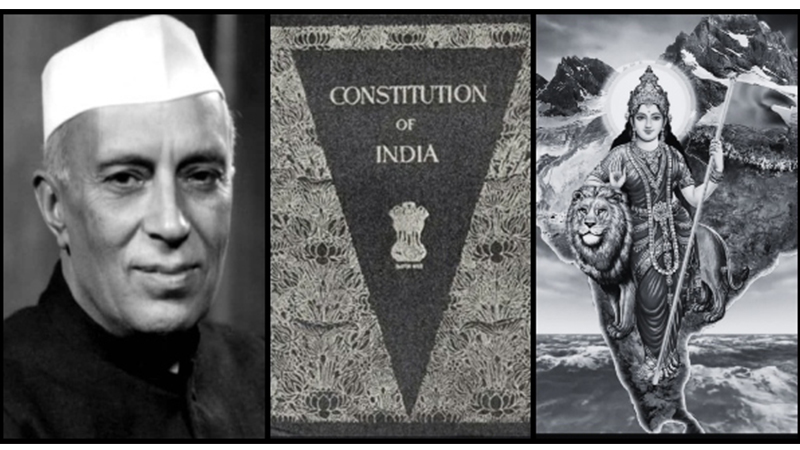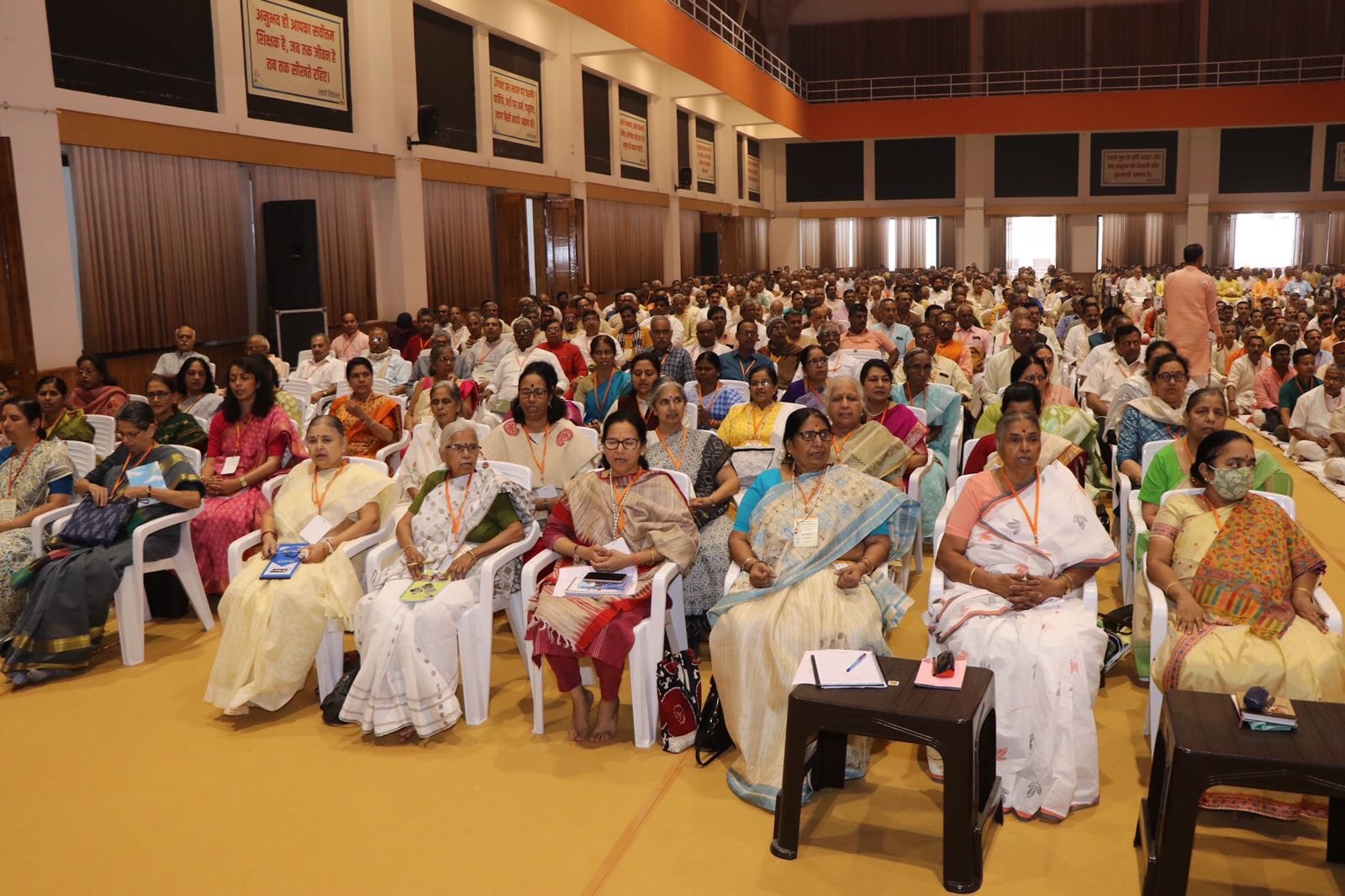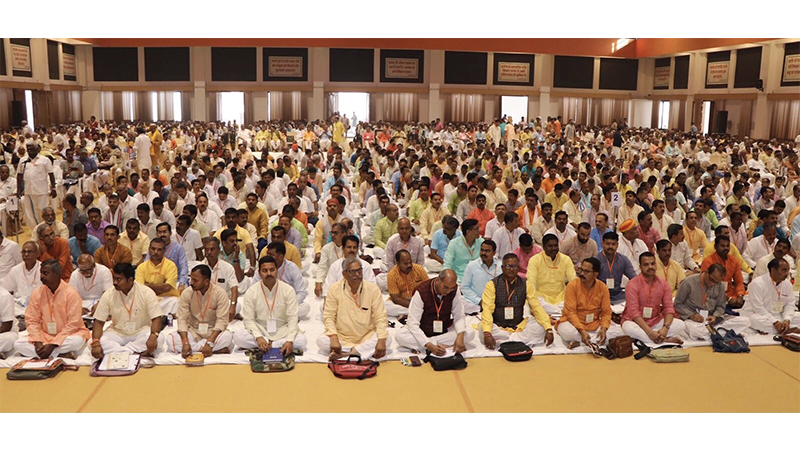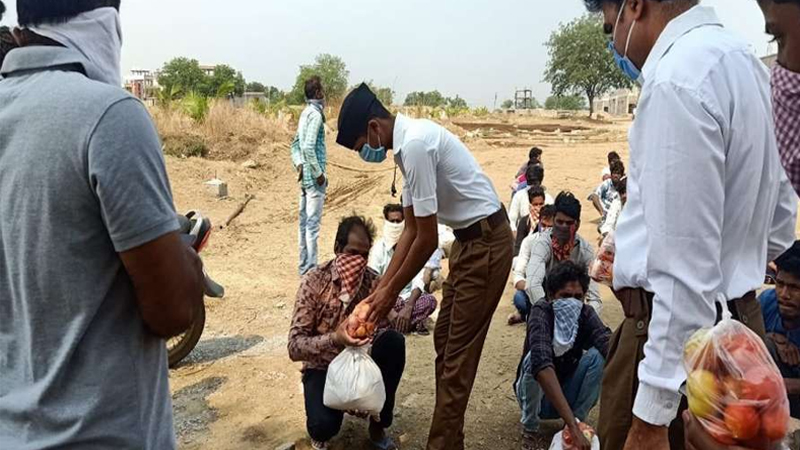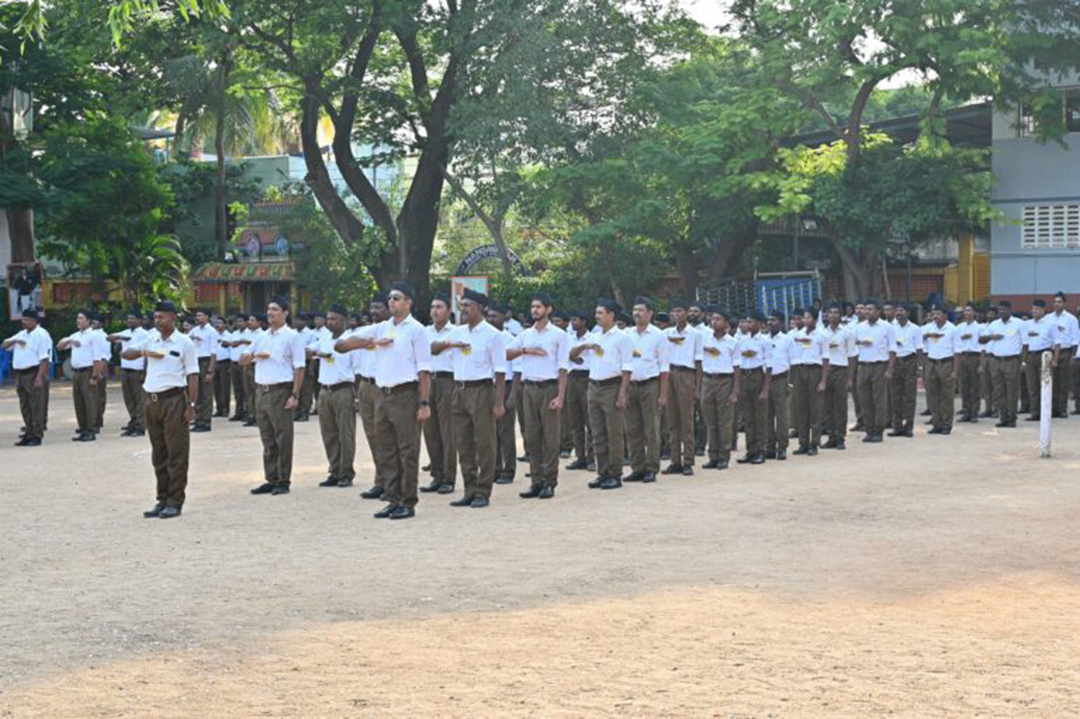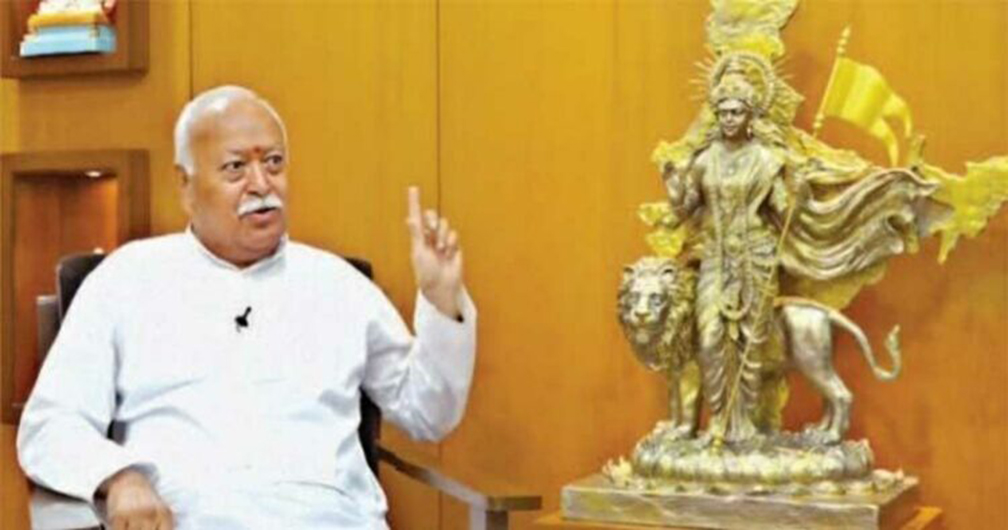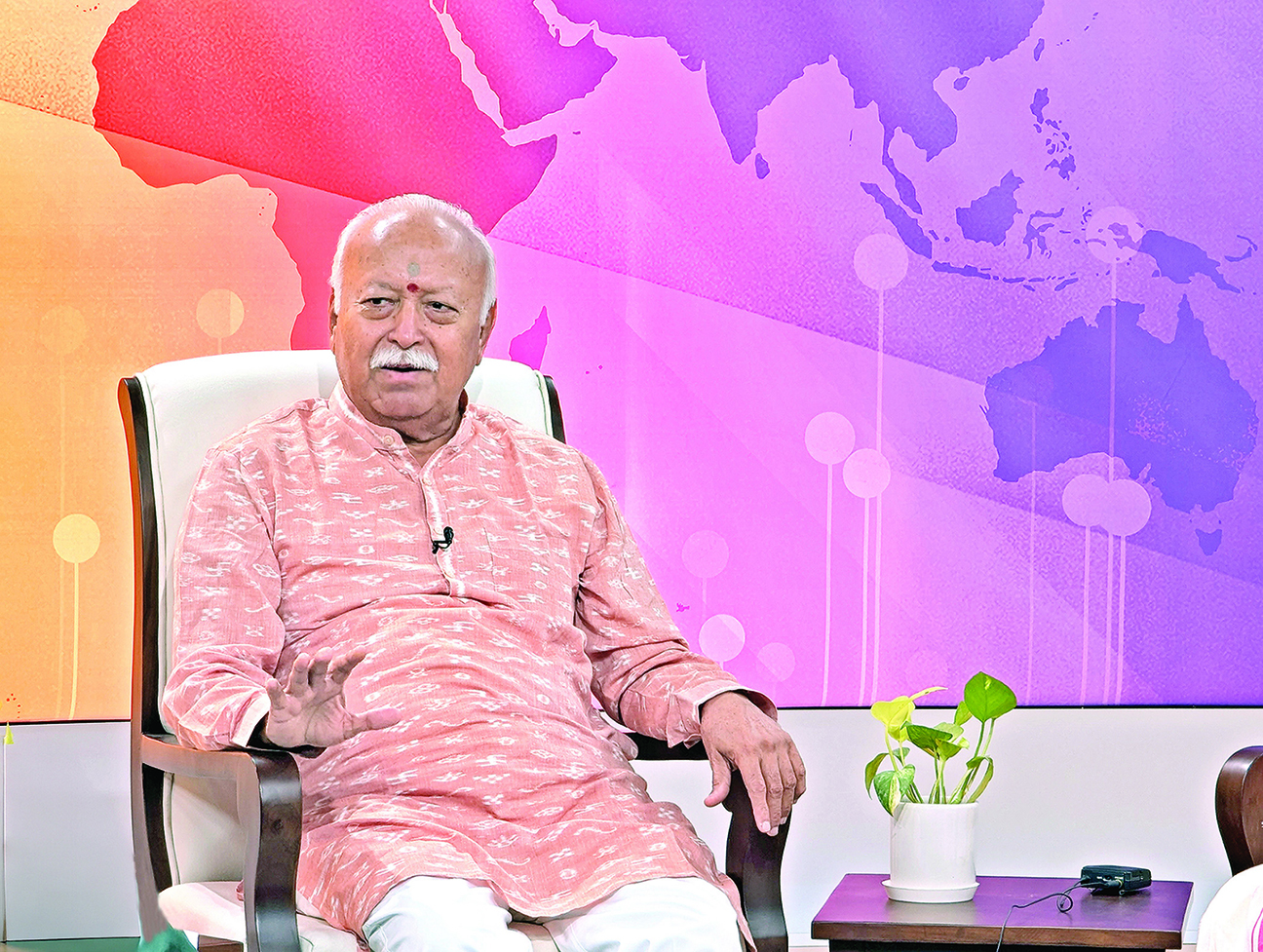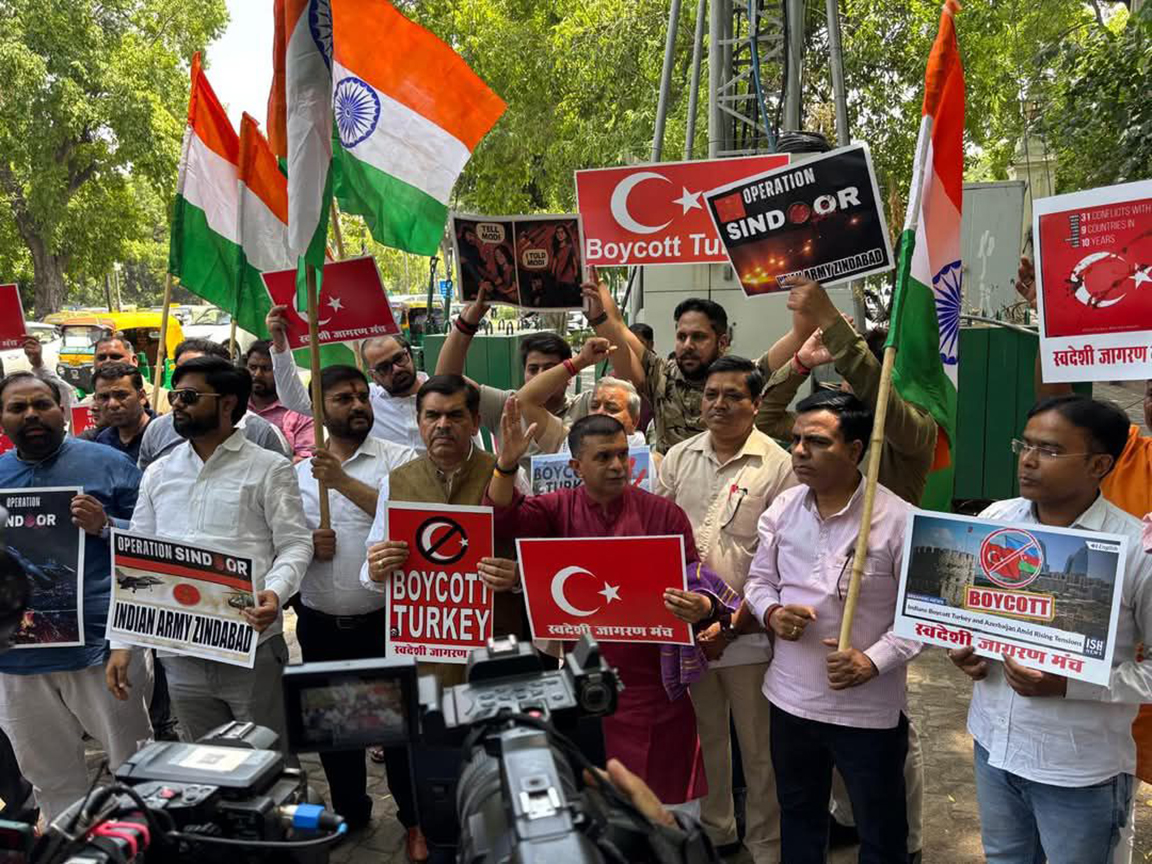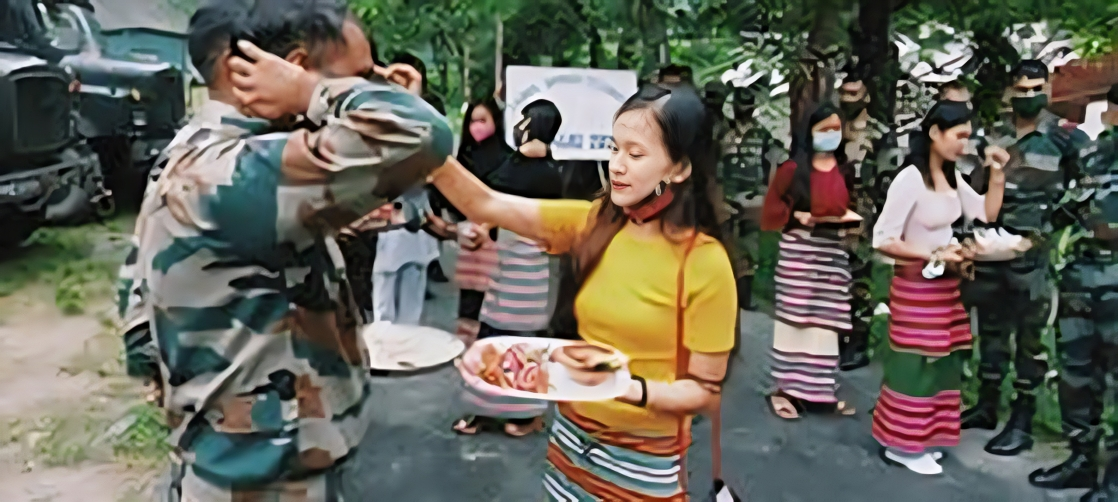Sewa Bharati: An RSS inspired organisation spearheading over 35000 social welfare projects
Updated: October 11, 2023 9:21
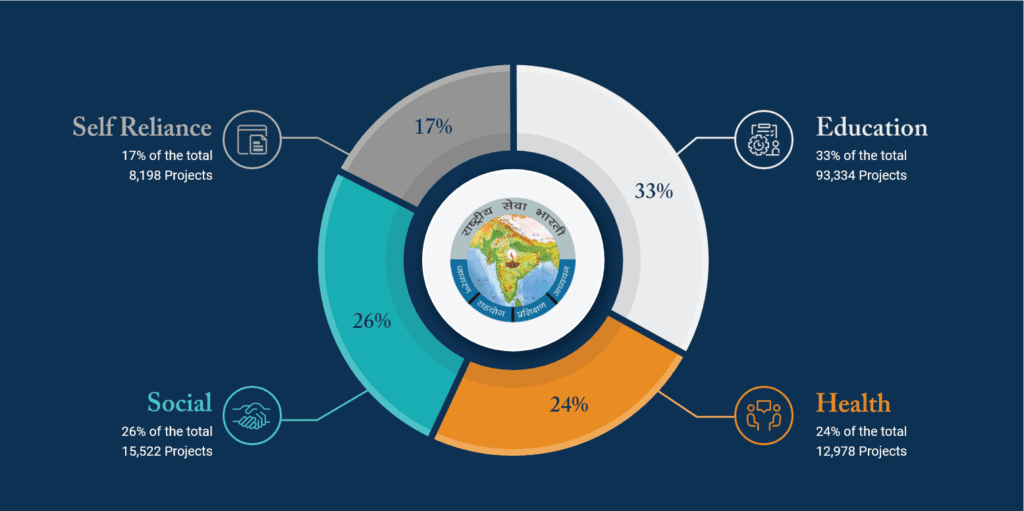
From running libraries, coaching centres to clinics and blood banks, Rashtriya Sewa Bharati, a social service organisation inspired by the Rashtriya Swayamsevak Sangh (RSS), is spearheading over 35,000 projects aimed at improving healthcare, education and employability for the unprivileged in urban slums, remote areas and among tribal communities.
Founded in 1989, the organisation (Sewa Bharati) came into being after Balasaheb Deoras, the third RSS Sarsanghchalak (chief mentor), called upon a gathering in Delhi in 1979 to start an organisation that would exclusively work among the poor and the vulnerable in the area of healthcare and education.
Later, Rashtriya Sewa Bharati was set up in 2003 as a public trust “with an aim to organise and nurture social working organisations with nationalism thought under one umbrella and to give them support in the training, analysis and implementation of sewakaryas (social works) in the field of education, health, self-reliance and other social activities”, according to the official website of the organisation. It works across the country with the help of its 45 representative organisations and 1,200 other affiliated trusts and non-government organisations (NGOs), the website adds.
The work of the Sewa Bharati is structured under four pillars -health, education, self-reliance and social activities. To achieve its goals, it follows a four-pronged strategy of Jagran (awareness), Sahyog (support), Prashikshan (training) and Adhyayan (analysis and study).
According to its website, the Rashtriya Sewa Bharati is currently running around 12,000 programmes in the field of education and health each. It also operates 11,221 social work projects and 6,763 skill development programmes to make the underprivileged sections of the society self-reliant.
Over 2 lakh volunteers are engaged in the various activities of the organisation. This includes the volunteers from the RSS, the Bajrang Dal and the Vishwa Hindu Parishad (VHP). Sewa Bharati and its associated organisations also carry out relief works to support the needy during natural disasters.
The idea behind these operations is not only to bring financial sustainability but also to develop the duty of social responsibility, equality and thought of nationality among the beneficiaries, the website states.
In July 2023, when floods caused immense damage to homes and critical infrastructure in Himachal Pradesh, Punjab and Haryana, volunteers from the RSS, the Bajrang Dal and the VHP and many like-minded organisations helped in arranging food, medicines, clothes and shelter for the affected people. Similarly, during Covid-19, the representatives of Sewa Bharati and its affiliated organisations provided food and medical support to the needy.
Rashtriya Sewa Bharati through several voluntary organisations operates schools, book banks, physical book libraries, mobile libraries, vocational training and coaching centres. It also runs schools for special children. The libraries have a vast collection of ancient text and literature related to Hindu culture, in addition to the books on competitive exams and various other subjects.
The children of the daily-wage workers living in the slums and remote villages are offered extra classes at Samskara Kendras (culture centres) and single-teacher schools, known as Ekal Vidyalayas. Similarly, coaching classes are held to prepare children for competitive exams, including medical, engineering, law, Union Public Service Commission (UPSC) and other government jobs.
Rashtriya Sewa Bharati is not only working at the grass-root level to strengthen the education system, it is also playing a significant role in making an outreach with its social service sector engagements rooted in Indian culture.
It runs around 3,000 Kishori Vikas Kendras(Adolescent girls’ development centres) where guidance is given to teenage girls around education, skill development, self-defence, health and other subjects. The basic vision, as per the website, is to help teenage girls become empowered in a true sense, both economically and socially, in keeping with the values and culture of the country. Training courses in sewing, tailoring, designing as well as in pickle, papad and masala(spices) making are offered at these centres.
Sewa Bharati also runs a number of computer centres to train youth as well as older people in basic knowledge of computers. These centres offer courses in computer software and hardware.
At Matrichhaya (mother’s care), the babies abandoned by their parents are taken care of, before they are handed over to childless couples through proper legal mechanism. Rashtriya Sewa Bharati also works with the hospitals and the police stations to get information about them. The children are sent to schools, vocational centres and supported during their higher studies till class 12.
Awareness programmes are organised by the Rashtriya Sewa Bharati under its four verticals-education, health, self-reliance and other social activities. The programmes focus on creating awareness about the social issues at regional and national level as well as on apprising the partners about the statutory requirements to run their respective organisations.
Rashtriya Sewa Bharati publishes articles and stories about the impact and awareness of such programmes through its publications Sewa Sadhna and e-newsletter. Exhibition-cum-seminar Sewa Sangam is held in which its affiliated NGOs participate and share ideas and vision behind the social works. It also provides a platform to discuss concerns regarding social work being carried out by its representatives. Apart from this, it helps out NGOs and trusts with their management-related issues.
Rashtriya Sewa Bharati also holds training and capacity building sessions for the representatives of the organisations associated with it. It also provides help and guidance to carry out social service activities and relief work during natural disasters such as floods and earthquakes. It carries out analysis and study of each and every programme which is being run. Similarly, before starting a new project, baseline surveys and studies are carried out in order to design a project according to the need. It helps with the implementation of the programme and later conducts impact studies. Research reports and the survey of all its current programmes are published every five years in Sewa Disha.
Ends

